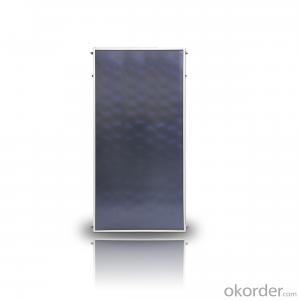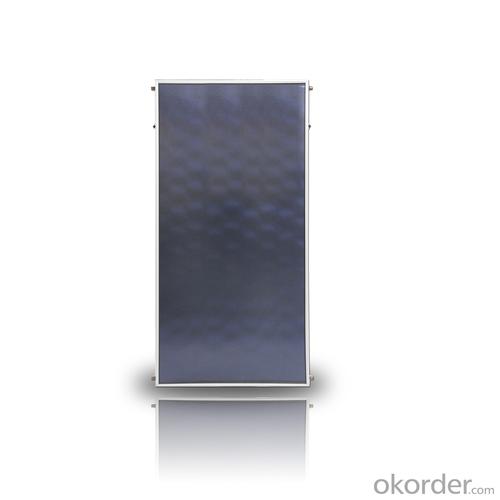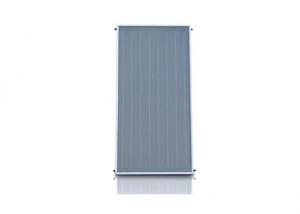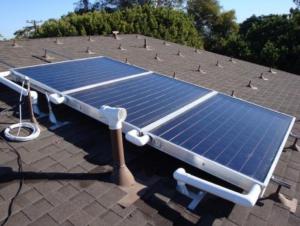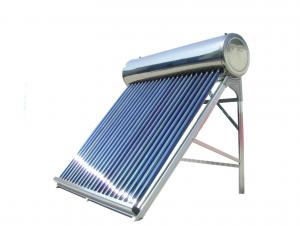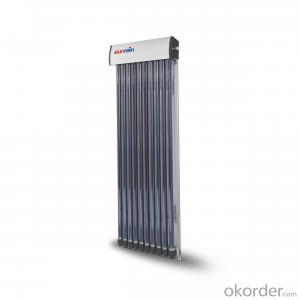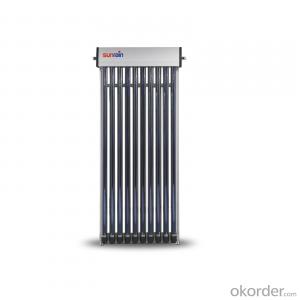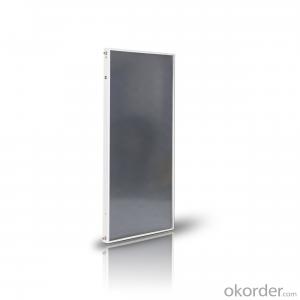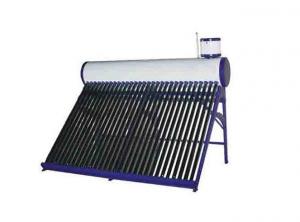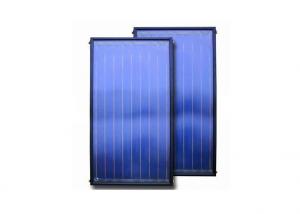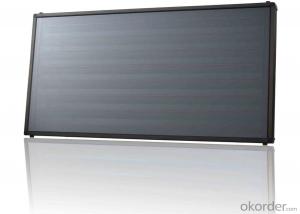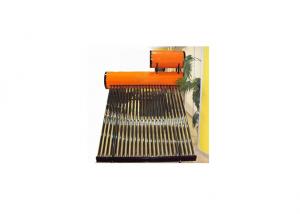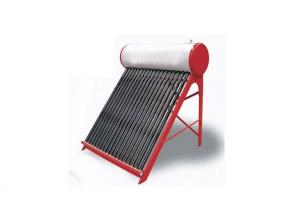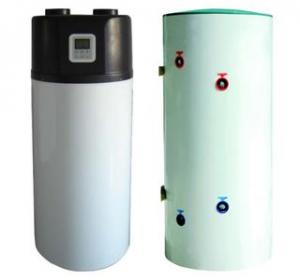Old Solar Water Heater FPC1200A Flat Plate Collector
- Loading Port:
- China Main Port
- Payment Terms:
- TT OR LC
- Min Order Qty:
- -
- Supply Capability:
- -
OKorder Service Pledge
Quality Product, Order Online Tracking, Timely Delivery
OKorder Financial Service
Credit Rating, Credit Services, Credit Purchasing
You Might Also Like
* Easy installation, long service lifetime.
* Better to be put in above-zero environment.
* Adjustable frame, easy to be installed in different places.
* Copper and aluminum composite panel, working with 6 bar pressure, test pressure: 10 bar
| Type | Flat Plate Collector |
| Pressure | Pressurized |
| Circulation Type | Indirect / Closed Loop (Passive) |
| Connection Type | Split |
| Certification | CE, Solar Keymark |
| Model Number | FPC1200A |
| Recommend region | world wide |
- Q: How does the efficiency of a solar water heater compare to a gas water heater?
- The efficiency of a solar water heater is generally higher than that of a gas water heater. Solar water heaters utilize free energy from the sun, converting it into heat, while gas water heaters rely on burning fuel to produce heat. This means that solar water heaters can provide hot water at a lower cost and have a smaller environmental impact compared to gas water heaters. However, the efficiency of a solar water heater can vary depending on factors such as location, weather conditions, and the quality of the system installed.
- Q: Can a solar water heater be used in areas with limited access to sewage infrastructure?
- Yes, a solar water heater can be used in areas with limited access to sewage infrastructure. Unlike traditional water heaters that rely on gas or electricity to heat the water, solar water heaters utilize the sun's energy to heat the water. They typically consist of solar panels that absorb sunlight and transfer the heat to a storage tank, which then supplies hot water to the household. Since solar water heaters do not require any connection to the sewage system, they can be installed and used in areas without proper sewage infrastructure. The system only needs a water supply to fill the storage tank, and the heated water can be used for various purposes such as bathing, washing clothes, and dishes. In areas with limited access to sewage infrastructure, alternative methods for wastewater disposal can be implemented, such as the use of septic tanks or other on-site treatment systems. These systems can handle the wastewater generated from the use of a solar water heater, ensuring proper sanitation and environmental protection. Additionally, the use of solar water heaters in areas with limited access to sewage infrastructure can have significant benefits. It reduces the reliance on traditional fossil fuel-based energy sources, which helps to mitigate climate change and reduce air pollution. It also provides a reliable source of hot water, which can improve hygiene and overall quality of life in these areas. Overall, solar water heaters are a sustainable and viable option for heating water in areas with limited access to sewage infrastructure.
- Q: How does the quality of water affect the performance of a solar water heater?
- The quality of water can significantly affect the performance of a solar water heater. If the water contains high levels of minerals, such as calcium and magnesium, it can lead to the formation of limescale deposits on the heating elements and pipes. These deposits can reduce the efficiency of the heater by insulating the heating surfaces, reducing heat transfer, and increasing energy consumption. Additionally, if the water is corrosive or contains impurities, it can damage the solar collector or storage tank, leading to decreased performance and potential system failures. Therefore, maintaining good water quality through proper filtration and regular maintenance is crucial to ensure optimal performance and longevity of a solar water heater.
- Q: Can a solar water heater be used in areas prone to wildfires?
- Yes, a solar water heater can be used in areas prone to wildfires. Solar water heaters do not rely on gas or electricity to heat water, so they can still function even during power outages caused by wildfires. However, it is important to ensure that the solar water heater is installed in a safe location and properly maintained to minimize the risk of fire damage.
- Q: Can a solar water heater be used in combination with a traditional water heater?
- Yes, a solar water heater can be used in combination with a traditional water heater. This setup is known as a "solar preheat" system, where the solar water heater preheats the water before it enters the traditional water heater. This combination allows for increased energy efficiency and cost savings by reducing the workload on the traditional water heater.
- Q: How does the energy efficiency of a solar water heater compare to a traditional water heating system?
- The energy efficiency of a solar water heater is significantly higher than that of a traditional water heating system. Solar water heaters utilize the sun's energy to heat water, which is a renewable and free source of power. In contrast, traditional water heating systems rely on fossil fuel combustion or electricity, which are both more expensive and less environmentally friendly. By harnessing solar energy, solar water heaters can reduce energy consumption and greenhouse gas emissions, resulting in lower utility bills and a more sustainable heating solution.
- Q: How does the warranty of a solar water heater compare to a traditional water heating system?
- The warranty of a solar water heater generally tends to be longer than that of a traditional water heating system. This is because solar water heaters have fewer moving parts and are known for their durability and longevity. Additionally, solar water heaters often come with separate warranties for different components such as the collector, tank, and controller, further ensuring coverage for potential issues.
- Q: Can a solar water heater work in cold climates?
- Yes, a solar water heater can work in cold climates. While solar water heaters rely on sunlight to generate heat, they can still be effective in colder regions. These systems are designed to capture and retain solar energy, and the use of insulation and antifreeze can prevent freezing in the collector and pipes. Additionally, some systems are equipped with backup heating elements to ensure hot water production during periods of limited sunlight. Therefore, with proper design considerations, solar water heaters can function efficiently in cold climates.
- Q: Can a solar water heater reduce electricity bills?
- Certainly, electricity bills can be significantly reduced with the use of a solar water heater. Unlike traditional water heaters that rely on electricity or gas, solar water heaters utilize energy from the sun to heat water. This eliminates the need for electricity and leads to substantial savings on electricity bills. Solar water heaters consist of solar panels or collectors that absorb sunlight and convert it into heat energy. This heat energy is then transferred to the water, providing hot water for household use. By taking advantage of the abundant and cost-free energy from the sun, the reliance on electricity for water heating is greatly minimized or completely eliminated. The amount of savings on electricity bills depends on various factors including the size and efficiency of the solar water heater, the household's hot water usage, and the local climate. In regions with ample sunlight throughout the year, the savings can be quite significant. In fact, studies estimate that a solar water heater can reduce water heating costs by 50% to 80% compared to traditional methods. Aside from reducing electricity bills, the installation of a solar water heater also offers other benefits. It is an environmentally friendly choice as it reduces dependence on fossil fuels and helps decrease greenhouse gas emissions. Furthermore, it can enhance the value of a property and provide a long-term, reliable source of hot water. In conclusion, investing in a solar water heater is a wise decision for homeowners seeking to lower their electricity bills and contribute to a more sustainable future. By harnessing the power of the sun, this technology offers significant cost savings and environmental advantages.
- Q: What happens to a solar water heater during a power outage?
- During a power outage, a solar water heater typically stops functioning as it relies on electricity to power the pumps and control systems. Without the electricity, the circulation of water through the solar panels and the transfer of heat from the sun to the water ceases. As a result, the water stored in the tank will gradually cool down to the ambient temperature. Once the power is restored, the solar water heater will resume its normal operation, but it may take some time to heat the water back up to the desired temperature. It is worth noting that some solar water heaters have backup systems, such as gas or electric boosters, which can be activated during power outages to ensure a continuous supply of hot water.
Send your message to us
Old Solar Water Heater FPC1200A Flat Plate Collector
- Loading Port:
- China Main Port
- Payment Terms:
- TT OR LC
- Min Order Qty:
- -
- Supply Capability:
- -
OKorder Service Pledge
Quality Product, Order Online Tracking, Timely Delivery
OKorder Financial Service
Credit Rating, Credit Services, Credit Purchasing
Similar products
Hot products
Hot Searches
Related keywords
